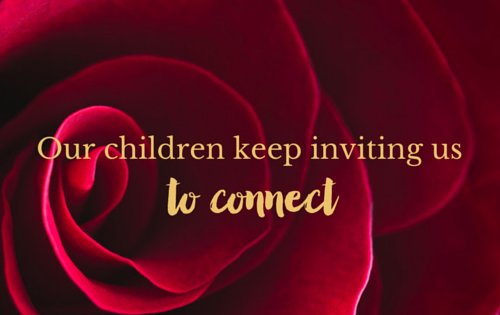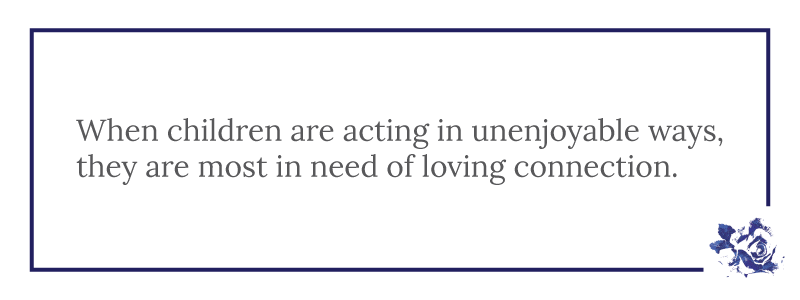Hello!
My passion is parenting, as you know!
And yesterday I realised that I’ve been missing one of my daughter’s invitation connections.
The three of us were chatting, and my daughter was deleting apps from my phone. And then she asked if we could play “Dubsmash”, which is an app. that we’ve played with once or twice.
I was a bit sleepy, and I reluctantly agreed. I thought it was going to be a ‘boring’ screen thing.
But since I’m doing this Kids, Screens and Aware Parenting course, I’ve been sinking below my judgments of screens to understand what is going on underneath.
So I said, “yes.”
In Dubsmash, you learn some recorded words, a phrase, or a song that’s been used in a movie or tv show, and mime to it whilst videoing yourself.
Well, an hour later, after we’d done about 8 of them, I saw how inaccurate my original thoughts had been.
We’d been close.
We’d discussed about which audios to use.
We’d played with ideas about how to stage the video so it was funny.
We’d laughed uproariously.
We’d been SO connected.
Did I mention how much we laughed!!?
If you want to watch them, come and look on my Facebook business page.
I talk a lot to mothers about how our children often invite connection in ways that we might easily miss.
For example, our child might jump on our back when we are crouching down on the floor.
I remember my son did this a lot when he was about 4. I used to feel frustrated, until I reframed it as a desire for connection.
Instead of getting frustrated, I’d turn it into a game and pretend to be surprised about what creature had landed on me, or I’d turn it into rough and tumble.
Or perhaps your child is running around, and roaring like a tiger. There’s another invitation connection.
We can get in there, and run around with them, roaring like a tiger too, or perhaps pretend to be a gazelle running away from the tiger.
Our children are constantly inviting us to connect.
And a reframe can be helpful here.
If we are thinking that connecting will take something from us, and we’ll feel depleted, then we’ll be likely to resist that connection.
If instead, we see that connecting with them will actually help fill our cup, especially if we can be really present whilst we’re connecting, then we are much more likely to say a big enthusiastic “YES” to their invitation.
They might invite connection in ways that can be hard for us to hear.
For example, they might hit their sister.
At times like this it can be hard for us to see the invitation.
But children often act in these kind of hard-to-hear ways when they are feeling disconnected.
So, we can reframe most of the behaviours we find challenging as connection invitations.
When we can see them as connection invitations, we’re much more likely to be able to respond with connection rather than disconnection and harshness.
For example, when our child is about to hit his sister, we can get in close and say things like, “looks like you are needing a big love cuddle,” and do some loving rough and tumble.
Notice how you feel and what you think when you read this.
We live in a world where the dominant paradigm is the punishments and rewards model – that if we do something unenjoyable, we need to be punished so that we can learn to be kind.
But what I’m talking about here is the connection model.
When we’re feeling really connected and loved, we don’t act in harsh ways.
Have you noticed that yourself?
That you only act in harsh ways when you feel disconnected and experience the absence of love?
Have you ever acted harshly when you’ve felt connected and loved?
Neither has your child.
How else can connection invitations look?
Well, they can look totally the opposite.
Perhaps your five year old is crying, and saying, “GO AWAY. I hate you.”
Is that an invitation connection?
When parents ask what is helpful here, how I usually respond is, “Can you remember being a child or teenager and saying that to your parents? And what did you really want them to do?”
Pretty much everyone says that they wanted them to stay, and to listen, and to hear their anger and hurt; to stay and make the feelings safe to feel.
So, we can stay, but with empathy and respect, “I hear you want me to go away, and I’m not going to leave you when you’re upset.”
And with tweens and teens, sometimes the invitation may come around screens.
Perhaps they want us to watch something with them.
Perhaps they want to show us the latest app or social media.
As I found yesterday, our judgments can get in the way of connection.
Believing that we cannot connect and be involved with a screen will get in the way of connecting if our teen is inviting connection though that medium.
I invite you to think of your child/ren and how they might be sending out connection invitations….
How do they invite you? And how could you say yes more often?
You might be surprised to feel how much connection comes as a result, and how much you enjoy it (just like I did yesterday!)
And please let me know what you discover!
I have a couple of new videos to share this week.
One has some suggestions about how we might phrase things in Aware Parenting:

And this one is about attachment:

Lots of Love,
Marion
xxxx



